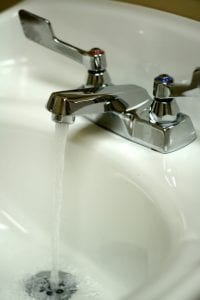
Not all homes in Silver Spring and Montgomery County have access to a municipal plumbing system. These homes instead rely on drawing their water from the ground well. Our plumbers are familiar with the plumbing systems necessary to keep water flowing from a well and into a home’s freshwater pipes. We work with well pumps, so if your home uses a well and you’ve experienced issues with a drop in water pressure, contact our team. They can help with fixing your well pump or replacing it if necessary. Our regular maintenance will see that your well pump continues to work at its best.
Today, however, we’re going to address another important concern with wells, and one that our professionals can help you with as well: water testing.
Regular Water Testing Is Vital for Wells
The water that comes from the municipal system must go through a treatment plant first to remove contaminants such as bacteria and lead. But water from wells doesn’t go through a treatment plant, which often makes it necessary for a homeowner to have a water treatment system in place to remove pollutants. There is a danger of harmful impurities entering a well through ground seepage.
Here are some of the specific concerns with well water that testing will find:
- Hard water minerals: The minerals that cause hard water are principally magnesium and calcium. This is the most common problem found in well water, and happens because of water passing through limestone and gypsum. Hard water isn’t known to cause negative effects on health, but it will cause damage to pipes and water-using appliances.
- Nitrogen: Nitrogen compounds enter the ground water through a number of sources, such as fertilizers, manure, sewage, and landfills. Common kinds of nitrogen in ground water are ammonia and nitrates. Nitrates are especially harmful to children under 6 years old.
- Bacteria: Many types of dangerous bacteria can enter through water seepage. coli is only one example of dangerous coliform bacteria that can enter your water.
- Sulfur: Sulfide and sulfates in water creates the “rotten egg smell” from well water. They can cause plumbing damage from corrosion and cause stains on clothing.
How Often to Schedule Well Water Testing
The National Ground Water Association recommends that well owners have water testing from professionals done once a year. They recommend testing more often if a homeowner notices specific issues with the water, which includes changes in taste and appearance, or if the property has recently had a septic system problem. Homes with infants or young children may often need to have more frequent water testing because children are at a higher risk from waterborne pollutants.
If you haven’t had water testing for your well in over a year, call our offices today to schedule your water testing in Chevy Chase, MD.
Water Testing Is a Good Idea for Any Home
We’ll close out this post with the reminder that testing water for a home, regardless of whether that water comes from a well or the municipal system, is a good idea. The water that comes through civic pipes can pick up lead, chemicals, hard water minerals, and other harmful pollutants. Thanks to our professional testing, you can find the water treatment system that will provide your house with healthy water.
Mallick Plumbing & Heating is the Contractor of Choice! Contact us for all your plumbing needs.
